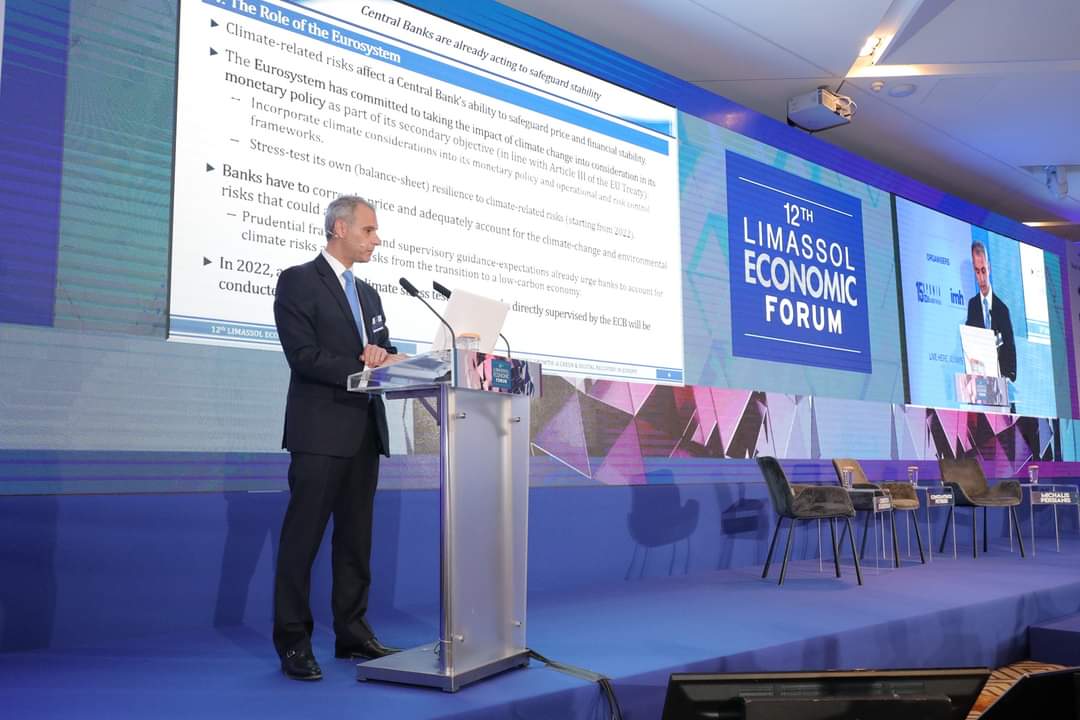The path to sustainable and resilient economic growth requires coordinated, bold and transformative actions, Central Bank Governor Constantinos Herodotou said on Friday adding that to achieve such transition, significant reforms and substantial amounts of capital are needed from both public and private sources.
Speaking at the Limassol Economic Forum, Herodotou said green financing and digital technology, in the context of a green and sustainable finance agenda, are two powerful forces to facilitate this transition, with the risks of falling behind being significant.
“It is critical to facilitate the private sector’s involvement, and to fully leverage technology in advancing sustainability,” he said. “Given the amount of capital needed, approximately €350bn, to meet the climate challenge in Europe, the participation of the private sector is key.”
He added that green and digital agendas are interconnected and potential synergies are invaluable. “Innovative solutions to complex environmental challenges such as biodiversity, and the development of ‘green’ production methods, services and products, are among the key areas that need to be addressed.”
Enhancing the availability, quality and consistency of pertinent data and information, sufficient understanding in mapping transmission channels, and reliable, forward-looking scenarios for analysis and stress testing are “essential and urgent to design effective strategies to better account for climate risks.”
Herodotou said that central banks are already acting to safeguard price and financial stability. “The Eurosystem has committed to taking the impact of climate change into consideration in its monetary policy, as part of its secondary objective,” advising banks to correctly price and adequately account for the climate-change and environmental risks that could arise.
“In 2022, a supervisory climate stress test for the banks, directly supervised by the European Central Bank, will be conducted,” Herodotou concluded.







Click here to change your cookie preferences